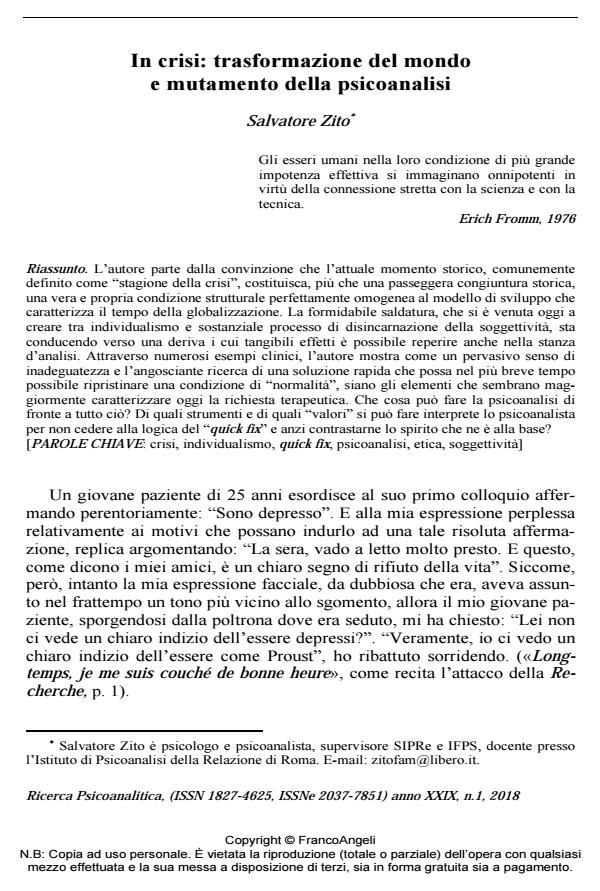In crisis: transformation of the world and changes in psychoanalysis
Journal title RICERCA PSICOANALITICA
Author/s Salvatore Zito
Publishing Year 2018 Issue 2018/1
Language Italian Pages 12 P. 29-40 File size 186 KB
DOI 10.3280/RPR2018-001004
DOI is like a bar code for intellectual property: to have more infomation
click here
Below, you can see the article first page
If you want to buy this article in PDF format, you can do it, following the instructions to buy download credits

FrancoAngeli is member of Publishers International Linking Association, Inc (PILA), a not-for-profit association which run the CrossRef service enabling links to and from online scholarly content.
The author starts from the assumption that the current period, commonly known as the "season of crisis", does not represent a passing moment but is a structural condition perfectly suited to the development model of globalization. The tight link formed by individualism and a process of disembodiment of subjectivity is leading humans towards a drift whose effects are often seen in the analytical room. With the help of clinical examples the author shows how a pervasive sense of inadequacy and the distressing search for a fast solution that can restore a condition of "normality" as soon as possible are the elements that seem to characterize most requests for therapy. What can psychoanalysis do? What tools and values can an analyst use in order not to surrender to the logic of a quick fix and for contrasting the spirit underlying it?
Keywords: Crisis, individualism, quick fix, psychoanalysis, ethics, subjectivity
Salvatore Zito, In crisi: trasformazione del mondo e mutamento della psicoanalisi in "RICERCA PSICOANALITICA" 1/2018, pp 29-40, DOI: 10.3280/RPR2018-001004